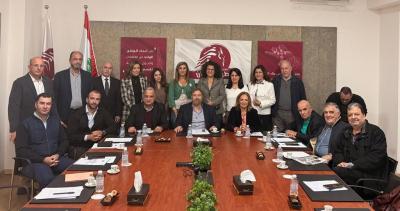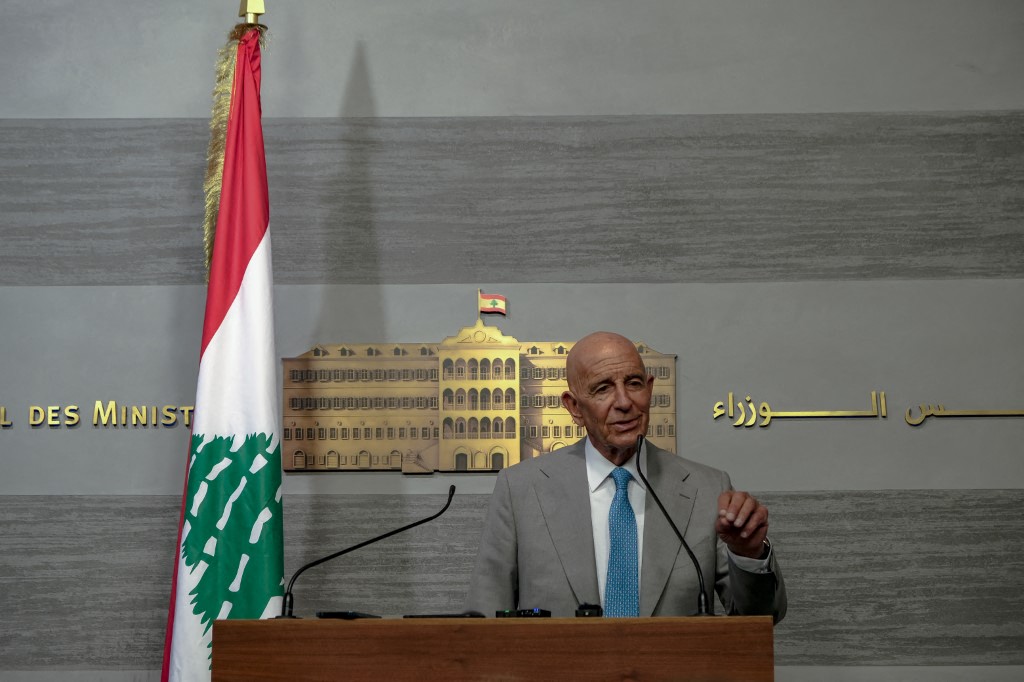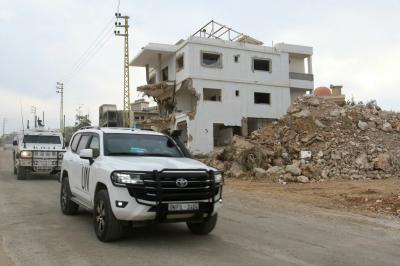The Lebanese saying “two-thirds of every joke is true” applies not only to casual remarks by ordinary people but also to the supposedly “personal opinions” voiced by officials or politicians. Such was the case with U.S. Ambassador to Turkey and Special Envoy to Syria, Tom Barak, who posted on X the day before yesterday.
Barak published a lengthy post titled “A Personal View – Syria and Lebanon: The Next Two Pieces Toward Peace in the Levant,” filled with implications and coded messages—though its long, deliberate format was atypical for the platform. His positions were not made during a TV interview—where one might claim to have been provoked or misquoted—nor in an impromptu comment, but rather in a carefully drafted written text. This means Barak chose his words deliberately and reflected before publishing—a man known for his “wild talkings” and controversial phrasing such as “Bilad al-Sham” and “animalistic.”
The timing was equally striking: it came as Beirut’s “resistance axis” began claiming that Barak had been sidelined from the Lebanese file, and on the eve of the arrival of the new U.S. ambassador to Lebanon, Michel Issa—suggesting that Barak was defining the framework within which the new envoy would operate. It also followed the Gaza agreement and the Sharm el-Sheikh Summit on October 13, 2025, which coincided with advanced positions by Lebanese President Joseph Aoun regarding negotiations with Israel and regional peace.
President Aoun affirmed that Lebanon had no choice but to engage in the ongoing “crisis settlement” track in the region, noting that “matters are moving toward negotiation to establish peace and stability, and yielding results... Through dialogue and negotiation, solutions can be found... We can no longer bear more wars, destruction, killing, and displacement.” In recent days, however, efforts by the Shiite “duo” have emerged to dilute or empty Aoun’s statements of substance—making Barak’s comments appear as a warning against such maneuvers.
While Barak’s points were not new—they’ve long been at the heart of both domestic and foreign discussions—their importance lies in the sharper tone of alarm they sounded, naming the threat of “Hezbollah’s” weapons plainly, without euphemism or diplomacy.
First, Barak pronounced the 2024 ceasefire agreement, brokered by the Biden administration, as effectively dead. Practically, this renders meaningless “Hezbollah’s” repeated claims of not firing a single bullet since then while Israel continues its strikes. The supposed “commitment” was never complete—it applied to refraining from fire, not to surrendering weapons or dismantling military infrastructure across Lebanon, as the agreement required.
The “duo” quickly responded, attempting to revive a dead “agreement.” Seeking to block any negotiations with Israel in which they are not the principal actors—as in the maritime border talks—and to avoid confrontation with President Aoun over his recent statements, Speaker Nabih Berri declared that the proposed negotiation track between Lebanon and Israel had collapsed due to Tel Aviv’s rejection of a U.S. proposal, citing Barak as proof. He further told Asharq al-Awsat that the only current path is the “mechanism” track, insisting on upholding the ceasefire agreement despite Barak’s declaration of its demise.
Second, Barak asserted that the disarmament of “Hezbollah” is inevitable—a converging point of interests among several players: for Lebanon, it would restore sovereignty and open the door to economic revival; for Israel, it would secure its northern border; for the United States, it would facilitate a “peace through prosperity” framework; and for the broader region, it would remove one of Iran’s main proxies—alongside Hamas—thus accelerating Arab modernization and integration.
Third, he warned that “if Beirut continues to hesitate, Israel may act unilaterally, with dire consequences,” adding that “if Beirut fails to act, the military arm of ‘Hezbollah’ will inevitably face a major confrontation with Israel—at a moment of Israeli strength and Hezbollah’s Iranian-backed weakness.”
Fourth, Barak outlined the advantage of joining the Abraham Accords and the growing peace momentum in the region—even amid the echoes of war—stressing that the Gaza Peace Summit marked the overture of a new symphony of cooperation, one that should extend northward to Syria and ultimately to Lebanon. He linked regional partners’ readiness to invest to Lebanon’s ability to restore the monopoly of legitimate force to the legitimate state alone. In practice, this cements the equation: no reconstruction while “Hezbollah” remains armed.
Barak concluded by saying, “Now is Lebanon’s time to act.” Does that mean that while“Hezbollah” was exploiting the empty clusters of time, we were engaged in the deadly time?
Please post your comments on:
[email protected]
 Politics
Politics













